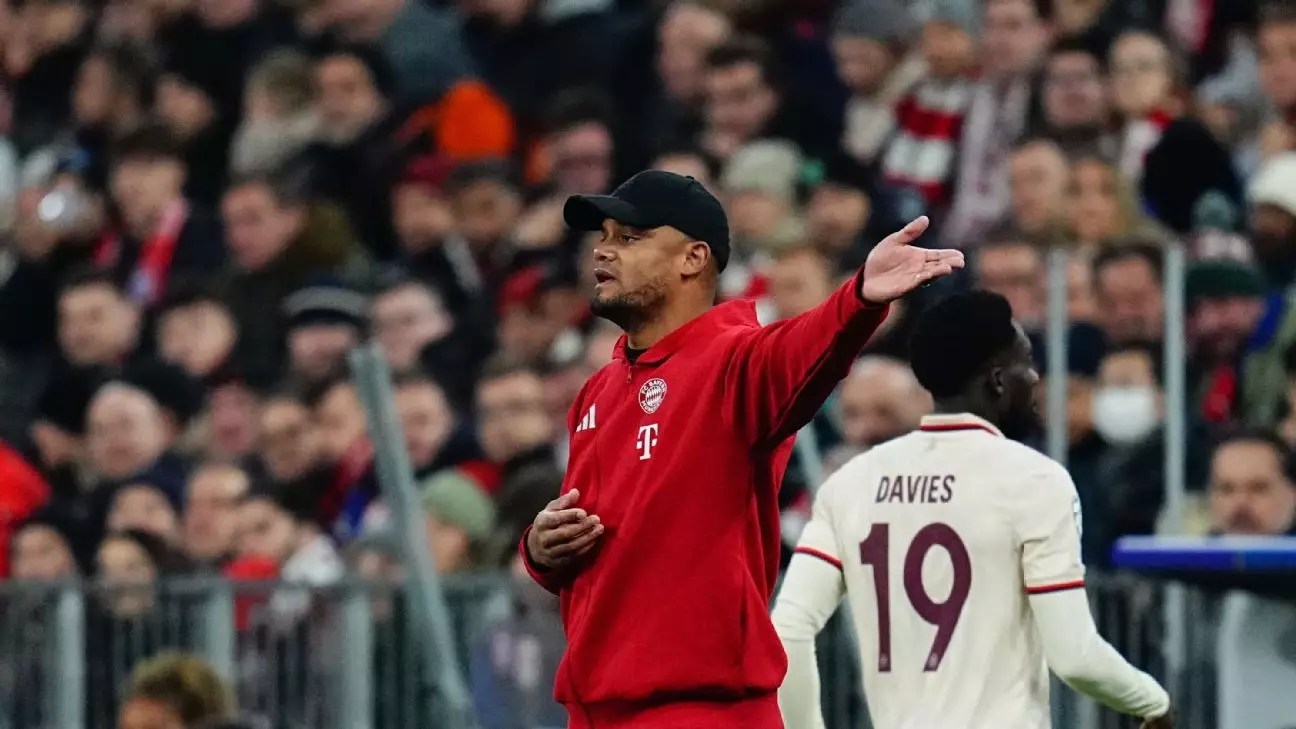Vincent Kompany, the newly appointed head coach of Bayern Munich, has recently made headlines not just for his coaching strategy, but for his candid remarks on the complexities of the new Champions League format. Following a narrow 1-0 victory over Paris Saint-Germain (PSG), Kompany expressed his struggles with comprehending the intricacies of the league’s current structure designed to include 36 teams. His comment, “I don’t look at the table because, honestly, I don’t yet understand it,” reflects a broader sense of confusion shared by many in the football community. This reformation aims to create a more competitive environment, but it undeniably introduces challenges, particularly for new coaches navigating its elaborate qualifications and structures.
Bayern’s hard-fought win against PSG marked their third victory in five matches, allowing them to climb to 11th place with nine points. Although this position might seem unimpressive by their historical standards, it places them within striking distance of the top eight, which guarantees automatic advancement to the knockout stage. With only three matches left in the first phase, every point becomes crucial, and the upcoming matches could determine both the team’s need for a playoff and their overall success in the competition this season.
The win over PSG was not merely a testament to Bayern’s resilience; it displayed the effectiveness of Kompany’s tactical approach. The team’s pressing game in the first half showcased a disciplined effort, evident in the performance of defender Kim Min-Jae, who not only netted the game’s only goal but also contributed defensively. Kompany acknowledged that while the team could have capitalized on additional scoring opportunities, securing a win against such formidable opponents adds valuable momentum moving forward.
Kompany’s focus remains clear: to maximize the potential of his squad and secure a place within the top echelon of the league. “What’s important is to reach our goal,” he remarked, emphasizing the importance of winning upcoming fixtures to bolster their positioning. As Bayern continues to adapt under his management, the need for consistent performances is paramount. Fans and analysts alike are watching closely to see how this young coach weather the pressures of an evolving tournament, and whether he can steer Bayern back to its expected heights.
The change in the Champions League format reflects an ongoing evolution within football that seeks to enhance competition. With teams now facing a greater variety of opponents rather than the traditional double round-robin format, the dynamics of qualifying for later stages have dramatically shifted. For coaches like Kompany, this creates both new opportunities and significant challenges, as they must adapt their strategies and build cohesive teams capable of thriving in unpredictable conditions. For the fans, this transformation promises to inject freshness into the tournament, potentially altering the landscape of European football as we know it.
As Bayern Munich and its coach navigate these uncharted waters, the focus will surely remain on growth, adaptability, and the relentless pursuit of excellence that defines the club’s storied history in European competition.


Leave a Reply